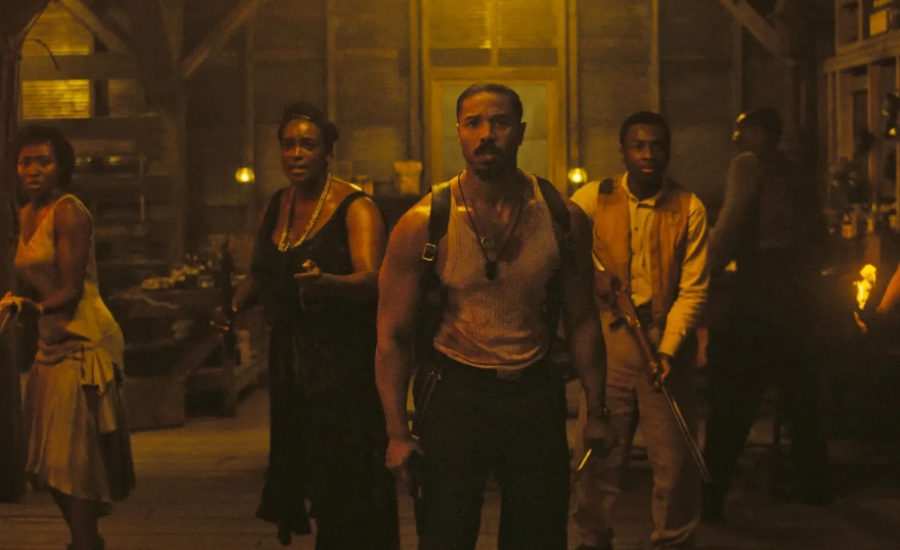Vance Condemns Israeli Lawmakers' 'Stupid Stunt' on West Bank Annexation Vote
Niall Carson/PA Wire/ZUMA
What to Know:
U.S. Vice President JD Vance voiced strong disapproval of a preliminary vote in Israel's Knesset on annexing the West Bank, calling it a "very stupid political stunt" that personally insulted him during his diplomatic visit.
Israeli Prime Minister Benjamin Netanyahu's office condemned the vote as a deliberate provocation by opposition lawmakers aimed at sowing discord amid ongoing U.S.-brokered efforts to maintain a ceasefire in Gaza.
The incident underscores the Trump administration's firm opposition to West Bank annexation, with Vance reaffirming that such a move will not occur under U.S. policy, while discussions focus on disarming Hamas and rebuilding Gaza.
JERUSALEM — U.S. Vice President JD Vance departed Israel on Thursday after a two-day visit aimed at bolstering a fragile ceasefire between Israel and the Palestinian militant group Hamas in Gaza, but not before sharply criticizing a symbolic vote in Israel's parliament that he said left him feeling personally insulted.
Speaking to reporters at Ben Gurion Airport before boarding his flight, Vance described a preliminary Knesset vote on Wednesday to advance legislation proposing the annexation of the occupied West Bank as "a very stupid political stunt."
The Israeli settlement of Ofra, seen from the nearby Palestinian village of Ein Yabrud in the occupied West Bank—one of approximately 160 such communities established since 1967 (Credit: Reuters)
"I personally take some insult to it," Vance said, emphasizing that the timing of the vote—coinciding with his meetings in Jerusalem—appeared deliberate.
The vote, which passed narrowly by a margin of 25 to 24, involved a broad bill to annex the entire West Bank and a narrower one targeting a specific settlement. However, experts note that such preliminary measures require at least two additional rounds of approval in the 120-seat Knesset to become law, and without backing from Prime Minister Benjamin Netanyahu's Likud party, they are unlikely to advance.
Vance's trip, which included discussions with Netanyahu and other senior Israeli officials on October 22, was part of the Trump administration's broader push to sustain a U.S.-brokered ceasefire in Gaza that has held despite mutual accusations of violations over the past weekend.
The ceasefire, negotiated amid ongoing hostilities that began in late 2023, aims to halt fighting in the densely populated Gaza Strip, where Hamas has governed since 2007. Hamas, designated as a terrorist organization by the U.S. and many Western nations, has been a focal point of the talks, with both Israel and the U.S. insisting on its disarmament as a prerequisite for lasting peace.
Members of Hamas's Izz ad-Din al-Qassam Brigades, wearing green headbands emblazoned with the group's emblem and the Shahada, hold up assault rifles during a military display in the Gaza Strip (Credit: EPA-EFE/MOHAMMED SABER)
Vance expressed cautious optimism about deploying an international security force to oversee this process, stating, "This is all still pretty early, but that's the basic idea." He also outlined plans for rapid reconstruction in Gaza areas cleared of Hamas operations, suggesting that Palestinians could return to places like the southern city of Rafah within two to three years to access jobs, security, and improved living conditions.
"Take the areas where Hamas is not operating, start to rebuild very quickly, start to bring in the Gazans so that they can live there, so they can have good jobs and hopefully some security and comfort, too, very quickly," Vance added.
The West Bank vote has drawn condemnation from Netanyahu's office as well, which labeled it "a deliberate political provocation by the opposition to sow discord during Vice President JD Vance's visit to Israel." Netanyahu, often referred to as "Bibi," leads a coalition government that includes far-right parties historically supportive of annexation—a term referring to Israel's formal incorporation of the West Bank into its sovereign territory.
However, public advocacy for such moves has waned since President Donald Trump publicly opposed annexation last month, warning that it could jeopardize U.S. support for Israel. Netanyahu is navigating domestic pressures, including dissatisfaction from coalition partners over the Gaza ceasefire, which could precipitate early elections if unresolved.
For EEW Magazine news readers unfamiliar with the region's complexities, the West Bank is a landlocked territory bordered by Israel to the west, north, and south, and Jordan to the east, encompassing key biblical sites such as Bethlehem, Jericho, and parts of Jerusalem—places of profound significance in Christian scripture as the birthplace of Jesus and settings for numerous Old and New Testament events.
Israel captured the West Bank during the 1967 Six-Day War, a conflict involving Israel and several Arab states, and has maintained military control there ever since. Under international law, particularly United Nations resolutions and the Fourth Geneva Convention, the territory is considered occupied, meaning Israel administers it but does not hold sovereign rights without a negotiated settlement.
Annexation would involve Israel declaring the area as part of its own state, a step opposed by much of the international community, including the U.S., because it could undermine prospects for a two-state solution—where Israel and a future Palestinian state coexist peacefully. Palestinians, who number about 3 million in the West Bank alongside roughly 500,000 Israeli settlers, view the territory as central to their aspirations for independence.
Vance reiterated the Trump administration's stance unequivocally: "The West Bank is not going to be annexed by Israel. The policy of the Trump administration is that the West Bank will not be annexed by Israel." This position aligns with broader U.S. efforts to promote stability in the Middle East, a region of strategic and religious importance to many Americans, including Christian conservatives who see Israel's security as intertwined with biblical prophecies and shared values. Secretary of State Marco Rubio echoed these concerns, warning that pursuing annexation could endanger reconstruction plans for Gaza.
While the vote has strained the atmosphere during Vance's visit, analysts suggest it is unlikely to derail U.S.-Israel relations, which remain robust amid shared interests in countering terrorism and fostering regional peace.
More on EEW Magazine Online:








